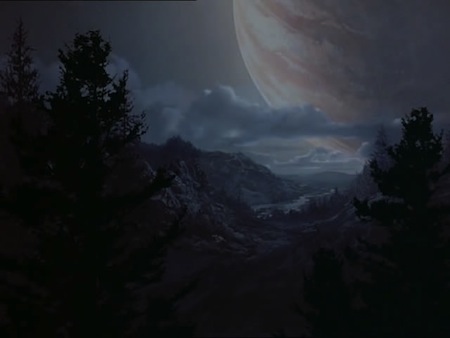There are good reasons to not dismiss something out of hand simply for it being commonly regarded as a cliche. Something being a cliche does not come from it’s inherent flaws, but from the flaws of numerous inferior immitators. Every cliche once started as an original idea that served a meaningful role that was highly important to the work it appeared in. But that being said, there are still real problems with making use of cliches. When an element is included in a fantasy work because the creators believe that it’s expected and a default component, then you have exactly the situation where the element is present without any context that makes it relevant and meaningful. Even more so, when you keep doing things the way it’s commonly expected, you end up just retelling the same bland generic stories that have been worn down to be without any distinguishing features. And so, back when I first started to create a fantasy world, I made a couple of choices what common fantasy elements I really don’t want to include. Not for the lofty goal of being original, but to protect myself from blindly going with the flow and end up in places I never wanted to be.
- Save the World: This is the lowest common denominator of motivations. Seeing yourself killed and anything you ever loved destroyed is something everyone wants to avoid regardless of circumstances and context. It’s lazy, and that makes it bland. Also, once the world is saved, you really cut off any chance to continue from there in a satisfying way.
- Dark Lords: Yawn. Vader is interesting because he’s a lackey. The Emperor is interesting because he’s so unassuming and his sorcerous powers come as a surprise. Lord Death Knight Demon Warlocj isn’t.
- Demonic Invasion: There are a couple of cool ones, but I just don’t want to use it myself.
- Chosen Ones: I find these intelectually offensive. The idea that a person is perfect and will automatically succeed because the powers that be decided it will be so is not just dead boring, it also implies that effort is irrelevant and some people are just better than others with no doing on their own.
- Prophecies: There are two types of cliche prophecies. The one type that tells you in advance what will happen with complete accuracy and as such remove any hope of tension from the story. And the type that can only be understood after the the prophecised event has already happened and is therefore completely useless. I actually did end up coming up with an idea to make supernaturalinsights into possible futures interesting, relevant, and non-spoiling, but that came out of my wish to not do either of those cliches.
- Lost Golden Ages: Like chosen ones, this one just doesn’t sit right with me ideologically. It’s the idea of “everything used to be better in the past”, which in reality always only means “I miss being previleged and getting unfairly advantaged over other people”. Not all development is automatically progress. But this feels way too close to wishing to restore a past that never existed in which the person felt previleged, so I don’t want to touch it.
- It actually is post-apocalyptic Earth: Get out and never talk to me again.

